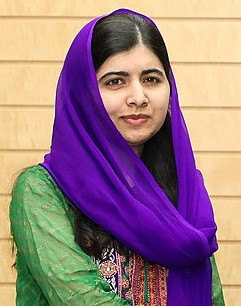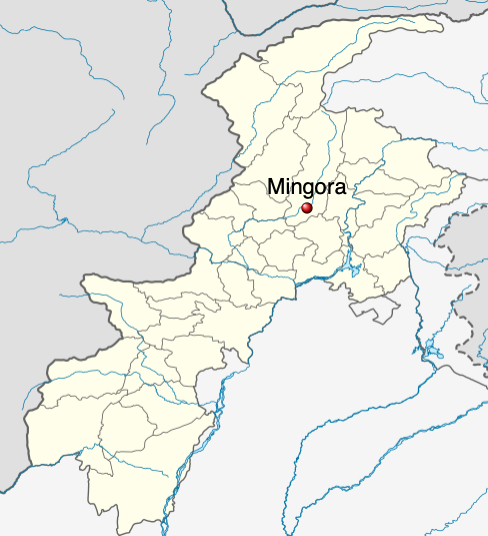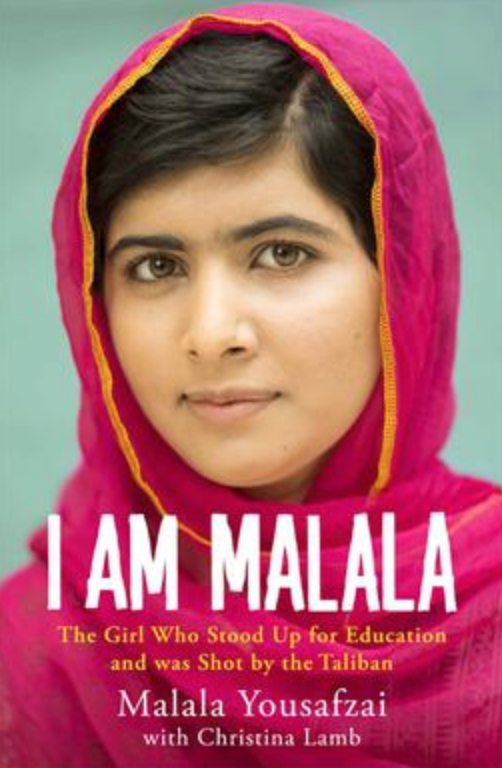Rachel Yuan
Current Events 📰
60 resourcesSee Units
Fighting for Free Accessible Education for Women
International Peace Day on September 21st—24 hours of non-violence and ceasefire worldwide—has inspired activists to incite change in the world, one of them being Malala Yousafzai. 🌎☮️
Activism in education is especially relevant in contemporary times. For one, the Taliban has taken over Afghanistan and stripped away most rights of Afghan women. The Taliban is the same military organization that attacked Malala for her activism in 2012. In the heyday of her activism career during the early 2010s, you've probably heard of the name "Malala'' quite often. The real question is: who really is she? ❓
Who Is Malala? ⚡️

Image from Wikipedia
Malala grew up a stellar student attending Khushal Girls High School in the city of Mingora. Her father, who ran the school, encouraged Yousafzai to focus on her education growing up. 🌟
In 2007, however, the Tehrik-i-Taliban Pakistan or TTP gained control of the region where Malala lived. As a part of their radical beliefs, the TTP began to impose strict Islamic Law, preventing women from being a part of society and destroying all-girls schools in the region. Helpless, Malala and her family fled the area and returned soon after the violence had mainly subsided. 📃

Image from Wikipedia
At the young age of 11 in 2008, Malala gave a speech titled “How Dare the Taliban Take Away My Basic Right to Education?” at a press club in Peshawar. As the TTP destroyed more girls’ schools, Malala began writing BBC blog posts about her experiences under the alias Gul Makai. 💬

Image from Wikipedia
The TTP eventually called a ceasefire to begin talks with the Palestine government and allowed women to attend schools with a burka mandate. This illusion of peace soon shattered as the violence resumed again, causing Malala and her family to flee the area again. Malala eventually returned to her hometown, and she quickly became an international star after her work as an activist gained notoriety.
What Exactly Does Malala Fight For? 👊
For most of her life, Malala has put her life at risk to advocate for free and accessible education for women and girls. While Malala initially focused on her home country of Pakistan, her nonprofit organization—the Malala Fund—helps fund education across the world. By supporting grassroots activism worldwide, the Malala Fund aims to increase educational initiatives globally. 🏫🌱
The organization meets with political and cultural leaders to advocate and encourage further education funding in public sectors. The fund has also created a digital newsletter and publication to share girls’ voices so that they can speak on educational inequalities similar to how Malala spoke out against injustice as a brave 11-year-old. 💵
More About Malala 🦸
Attack by the Taliban 💥
On October 9, 2012, Malala was gruesomely attacked on a bus by a Taliban member. Malala, who was only 14 at the time, was shot in the head and the neck. Luckily, Malala survived after being flown to the UK for treatment of her critical wounds. The attack also injured two other schoolgirls, but thankfully they also recovered soon after that. 🚌
Through a spokesperson, the Taliban confirmed the attack targeted Malala, and the reason for the attack was her “obscene” activism for girls’ education. The spokesperson stated that this was a “lesson” for Malala and that if she survived, they would attempt to assassinate her again. 😡
This attack showed that Malala’s activism was so significant in Pakistan that the Taliban would single her out and openly admit to hating her work in girls’ education. This murder attempt ironically landed Malala wider publicity, and one year later, she wrote about her horrific experience in a memoir called I Am Malala. ⚡️

Image from Wikipedia
Since publishing I Am Malala in 2012, Malala has published a picture book (Malala's Magic Pencil) and a young reader's novel (We Are Displaced: True Stories of Refugee Lives). She has also starred in a documentary about her own life (He Named Me Malala) and played a supporting role in many other films and documentaries. In 2020, a biological film about Malala in Hindi named Gul Maka exploded in popularity. Most recently, Malala signed a contract with Apple TV+ in 2021 to produce content under its service for several years. 🎬🍎
A notable activist, Malala has achieved several huge awards. One of her most prominent recognitions is being the youngest Nobel Peace Prize winner at 17. 😲
Where is She Now? 🌎
Now 24-years-old, Malala Yousafazi resides in Birmingham, England. In 2020, Malala finished her undergraduate degree in Philosophy, Politics, and Economics from Oxford University. Since then, Malala has traveled worldwide speaking at events and with leaders through her nonprofit, the Malala Fund. 🗣️
In response to the recent overtaking of Afghanistan by the Taliban, Malala has pleaded with the UN to protect Afghan women's right to an education. In a powerful statement in front of a girl's education panel in the United Nations General Assembly, Malala said, "We cannot make compromises on the protection of women's rights and the protection of human dignity." (Click here to view Malala's New York Times published essay on this new development in Afghanistan.) 👩
Sources for Further Reading 🔑
Connect with other students studying Current Events with Hours.
Browse Study Guides By Unit

Fiveable
Resources
© 2023 Fiveable Inc. All rights reserved.